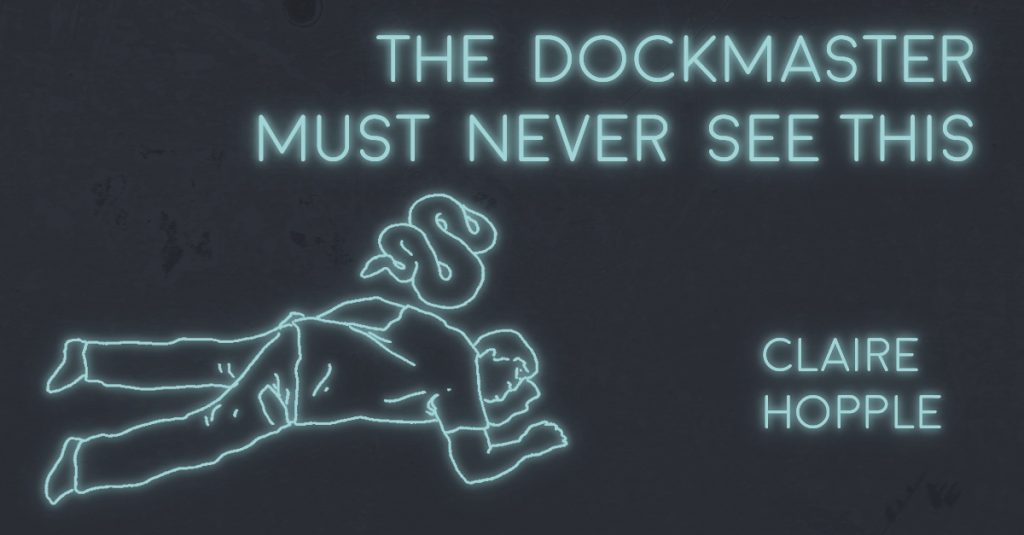Gretchen starts with ditching her cell phone. She connects a landline and absconds with an old friend’s answering machine.
She receives a message from a wrong number telling her to meet at a houseboat by the river tomorrow at nine. The voice doesn’t specify whether that’s A.M. or P.M. She plays the message over and over, repulsed.
The following day, she settles on a bench beside the river. There’s only one boat. It’s docked directly in view of the casino. It’s not a houseboat. Not at all. Regardless, this must be the place.
Hampered by the stranger’s lack of specificity and not yet emboldened enough to track down her hunch, she decides that he meant nine at night, not nine in the morning like it is right now.
Gretchen doesn’t go home. She continues to sit on the bench. She stares at a patch of dormant grass and tries not to think very deeply about its symbolism.
A breeze kicks up from the water. She puts her fingers on her neck to warm them, which feels like being mean and nice to herself at the same time. Maybe she is canceling herself out.
There’s a doughnut cart over by the playground. She stands down from her station for reinforcements and fraternizes with the pigeons by feeding them crumbs.
Finally, it’s time. Gretchen enters what is meant to be the living room, bringing a wake of her own.
“The dockmaster must never see this,” a man says from the ground.
He stops blinking away the blood from a gash on his forehead.
“You’re still alive? I wasn’t sure,” Gretchen says.
“Tell it to the buoys.”
According to the vinyl beside him, he wasn’t the only victim. A mangled ball python lies on torn cushions.
“Can it be cured?” he asks, gesturing to the snake but not moving very much.
She wasn’t sure if by “cured” he meant made into meat or healed. She doesn’t answer.
There are so many ways to make it clear that a visitor doesn’t belong, she thinks, and one of them is not using customary specifics when requesting said visitor in the first place, even if the message was intended for someone else. She could have arrived before it was too late. Still, she almost wishes she could decipher the architecture of helpfulness.
He looks like one giant and triumphant recessive gene lying there on the floor like that. He probably studies escape routes of public buildings.
The man keeps shouting at her, “I keep shouting at you!”
But then he reaches a more suitable volume. He volunteers that he used to be a tightrope walker.
“How did you do it?” Gretchen asks.
“I could tell you, but it’s much more interesting to learn how you do it,” he says.
His small table holds what looks like a framed portrait of a slice of rhubarb pie.
“I used to think I wanted to be inconspicuous about my work. Like the daytime moon. Now I know I’ve always yearned to be caught. I can tell you’re the same way. And yet you’ve failed me,” he says, trying to get up.
Failing people. This is the sort of thing she can do.
“I know what you’re getting at,” she says.
The man seems to already know about her. She does want to be reprimanded, but the only people who notice her are the people who don’t seem to mind.
“Look, there’s a horde of angry civilians peering in the portholes and murmuring at us right now.”
There isn’t.
“Do you want…a bandaid?” she manages. “Or an MRI?” she tries again.
A woman joins them below deck and sets down her purse. Her name tag says: LUCKY.
“That student government your son is involved with, it’s really just a puppet regime,” Lucky says.
She sits down on the flayed cushions, right on top of the snake carcass, and unties her shoes.

